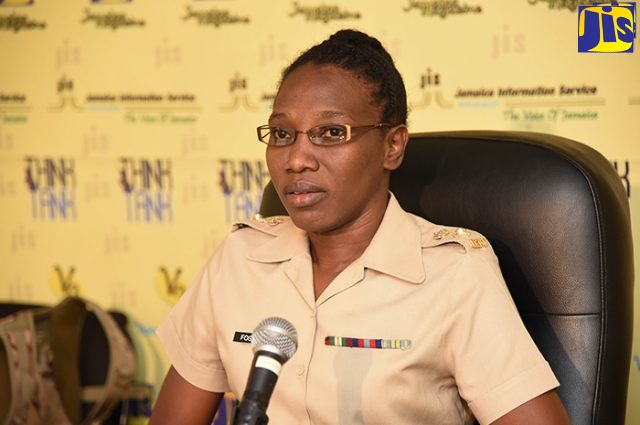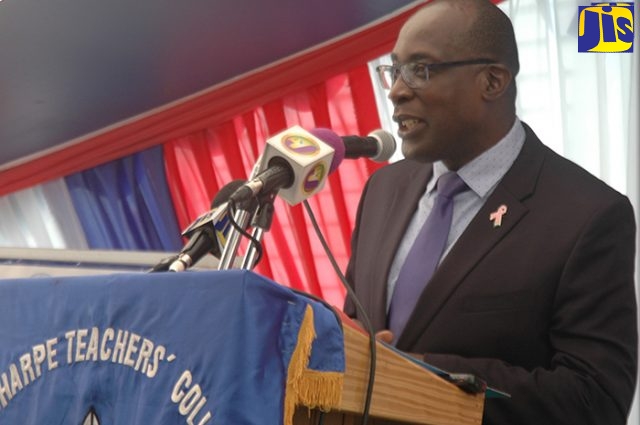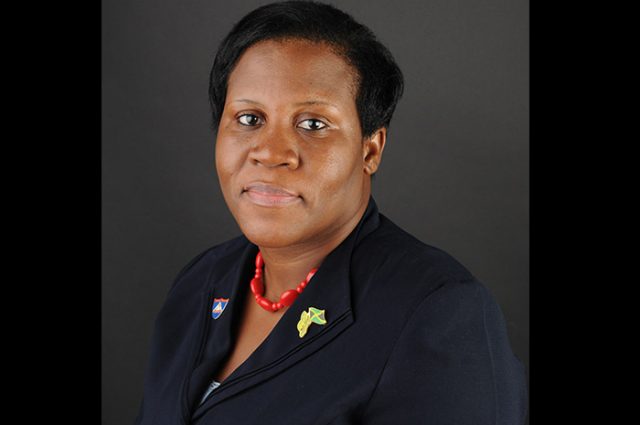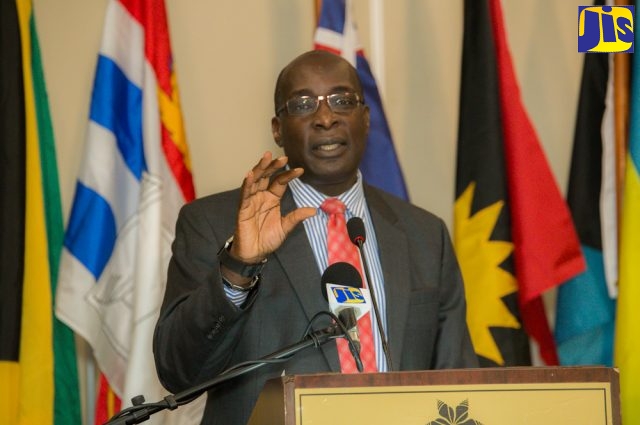JIS: Minister of Education, Youth and Information, Senator the Hon. Ruel Reid, says a Jamaican diaspora organisation in the United States is to donate more than 10,000 information and communications and technology (ICT) devices to the education sector.
The items will include computer servers, laptops and desktop computers, the Minister noted.
Senator Reid was speaking to JIS News at the opening of a new classroom for grade one at the Mona Heights Primary School in Kingston on Thursday (October 25).
The Minister pointed out that the offer was made when he attended the Enactus World Cup 2018, held from October 9 to 11 in Silicon Valley, California, in the United States.
Senator Reid said following talks with representatives of the organisation, the California-based non-profit organisation will donate an estimated 10,000 computer items annually.
“We are hoping that by June, if not before, we can get all those devices and have them distributed across our schools,” the Minister said.
Senator Reid pointed out that the additional equipment will help to address the challenges in technical subject areas such as mathematics and science.
“We have to get our students and teachers to recognise that the Internet is a tremendous asset in terms of teaching and learning, but we have to provide the equipment,” he said.
The Minister said the collaboration is timely, as the Ministry is encouraging more computer-aided teaching in the classroom.
“We will make sure that we provide support in terms of Internet connectivity or offline solutions by having information backed up on servers, so that this can be used.
We have to prepare our schools and students for the imperatives of the future, and we are very happy for this contribution from the diaspora,” he added.
He also noted that the United Kingdom-based diaspora charity, Angel Foundation, has indicated an interest in supporting the Ministry’s ICT thrust.
The new classroom was constructed, furnished and outfitted with a state-of-the-art multimedia projector, flat-screen television and a reading corner, at a cost of $3.5 million provided through the school’s fundraising activities and stakeholder contribution.
In 2017, the Ministry provided $4 million to construct bathroom facilities for the grade-one block.
Also attending the ceremony were Member of Parliament for St. Andrew Eastern and Minister without Portfolio in the Ministry of Finance and the Public Service, Hon. Fayval Williams; and Councillor for the Mona Division, Andrew Bellamy.
CAPTION: Minister of Education, Youth and Information, Senator the Hon. Ruel Reid (right), assists a grade-one Mona Heights Primary School student with her lesson. The Minister was taking part in the opening of a new grade-one classroom at the school’s Aralia Drive address in Kingston on Thursday (October 25).











